|
|
THURSDAY / 08 JUNE 2017

|
|
RESEARCH PAPER SERIES
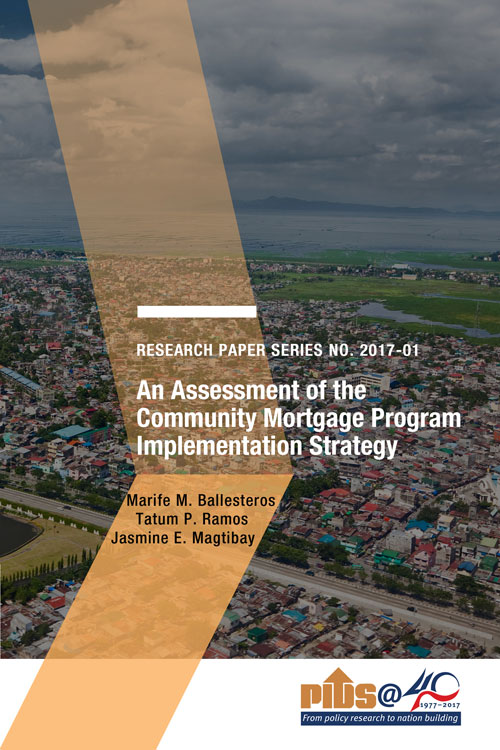
The Community Mortgage Program (CMP) is a financing scheme that enables organized residents of slums to borrow funds for land purchase and housing development. It is considered to be the most innovative and responsive government housing program in the Philippines. Nevertheless, the CMP still has weaknesses that have not been given much attention during the years of its implementation. Know more about the issues surrounding the CMP, such as those that pertain to program targeting, service delivery, and organization, and the current processes and overall performance of the CMP, including its variants—the localized CMP and the High-Density Housing Program. The study also provides recommendations on how the identified issues can be addressed. Click here to download the paper.
DEVELOPMENT RESEARCH NEWS
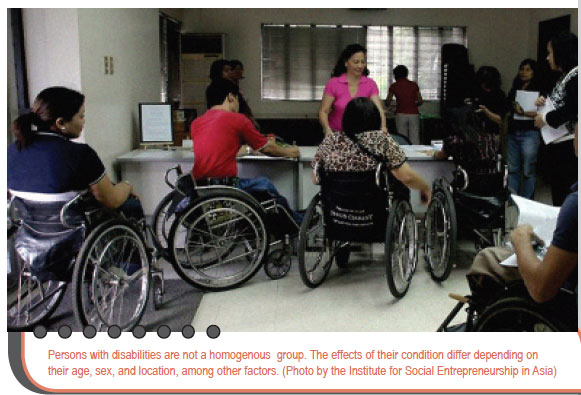 The first issue of the Development Research News (DRN) this 2017 primarily focuses on persons with disabilities (PWDs). Researchers from the Philippine Institute for Development Studies (PIDS), through a research project conducted with the Institute of Developing Economies-Japan External Trade Organization, found that women and children PWDs are still suffering from the same dire conditions as before. The banner story deepens the discussion on this matter and presents the key recommendations that PIDS researchers are offering to improve the situation of the PWDs. This issue also covers the major events of PIDS during the period. These events include the PIDS forum on food security, where PIDS Senior Research Fellow Roehlano Briones attributed the increase of rice prices to the government's policy on self-sufficiency, and the roundtable discussion on the future of the ASEAN Community, which PIDS organized with the Singapore Institute of International Affairs. Click here to download the newsletter. The first issue of the Development Research News (DRN) this 2017 primarily focuses on persons with disabilities (PWDs). Researchers from the Philippine Institute for Development Studies (PIDS), through a research project conducted with the Institute of Developing Economies-Japan External Trade Organization, found that women and children PWDs are still suffering from the same dire conditions as before. The banner story deepens the discussion on this matter and presents the key recommendations that PIDS researchers are offering to improve the situation of the PWDs. This issue also covers the major events of PIDS during the period. These events include the PIDS forum on food security, where PIDS Senior Research Fellow Roehlano Briones attributed the increase of rice prices to the government's policy on self-sufficiency, and the roundtable discussion on the future of the ASEAN Community, which PIDS organized with the Singapore Institute of International Affairs. Click here to download the newsletter.
|
August 24, 2017, 9AM–5PM
ERIA-PIDS-MinDA-AS Public Symposium on “Building ASEAN Socio-Cultural Community and Nation Building”
Venue: Davao City, Philippines
June 20, 2017, 10AM–12PM
Book Launch: Banking on the Future of Asia and the Pacific: 50 Years of the Asian Development Bank
Venue: ADB Headquarters, Mandaluyong City
Click here for the invitation
Click here for the program
.jpg)
The Philippine Journal of Development is a professional journal published by the Philippine Institute for Development Studies. It accepts papers that examine key issues in development and have strong relevance to policy development. As a multidisciplinary social science journal, it accepts papers in the fields of economics, political science, public administration, sociology, and other related disciplines. It considers papers that have strong policy implications on national or international concerns, particularly development issues in the Asia-Pacific region.
CLICK HERE for the guidelines in the preparation of articles. Submissions and inquiries may be sent to PJD@mail.pids.gov.ph.
|
POLICY NOTES
- PN 2017-12: Have We Institutionalized DRRM in the Philippines?
by Sonny N. Domingo and Ma. Divina C. Olaguera
The Philippine archipelago is one of the riskiest places to live in given the natural geological and hydro-meteorological occurrences, aggravated by human-induced disaster situations. As such, an effective disaster risk reduction and management (DRRM) scheme requires action on several fronts, such as governance, social protection, infrastructure, and resource management. This Policy Note assesses the extent of DRRM institutionalization in the country, as well as its knowledge and science application, regional and local cooperation, human capital and capacity building, accounting and administrative processes, and monitoring and evaluation options. Among others, it discovers an apparent institutional divide between the Climate Change Action Plan and the National Disaster Risk Reduction Management Plan (NDRRMP), which is inconsistent in the context of a whole-of-government approach. The study calls for the government to harmonize this divide and to contextualize the NDRRMP within the broader perspective of DRRM and its defined thematic pillars. It also urges the National Disaster Risk Reduction Management Council to assume its leadership mandate as expressed in the law. Click here for the full article.
- PN 2017-11: Assessment of the Targeting and Financing Aspects of the RSBSA-AIP
by Celia M. Reyes and Christian D. Mina
The Philippine Crop Insurance Corporation (PCIC) is among the first users of the Registry System for the Basic Sectors in Agriculture (RSBSA) list—a registry of farmers, fisherfolk, and farm laborers mainly used to identify beneficiaries for different agriculture-related programs and services of the government—for the implementation of its special program, the RSBSA Agricultural Insurance Program (AIP). This Policy Note looks into the targeting and financing aspects of the RSBSA-AIP and uncovers leakage problem due to the lax eligibility requirements. It also finds that the PCIC has excluded a significant proportion of eligible agricultural producers from the said program simply because they are not found in the list. Know more about the issues surrounding the RSBSA-AIP and the recommended interventions to come up with a more holistic and efficient RSBSA list. Click here for the full article.
- PN 2017-10: Examining Energy Use and Weather Variability Through the Gender Lens
by Connie B. Dacuycuy
While substantial studies on energy use have been done in developing countries, there are limited researches analyzing such within the context of weather variability and gender. This Policy Note provides an analysis between the relationship of households' energy use and different sex composition in response to weather changes. The study reveals that the impact of weather variability is highest in female-headed households in rural areas. Moreover, it also observed a difference in the monthly electrical consumption between female- and male-majority households. Read about the results of the study and some recommendations to improve energy use in Philippine households. Click here for the full article.
- PN 2017-09: Do Men and Women in the Philippines Have Equal Economic Opportunities?
by Jose Ramon G. Albert and Jana Flor V. Vizmanos
According to the World Economic Forum, the Philippines has been leading the economies of the Association of Southeast Asian Nations in advancing gender equality since 2006. The organization cited, however, that the country needs to improve economic opportunities for its women population. Using select indicators of the Sustainable Development Goals, it was found out that employed Filipino women indeed face more disadvantages than men. Discover the reasons behind the inequality and how the government can intervene to promote equal economic opportunities. Click here for the full article.
DISCUSSION PAPERS
- DP 2017-20: National Accounts and Household Survey Estimates of Household Expenditures: Why Do They Differ and Why Should We Be Concerned?
by Jose Ramon G. Albert, Ronina D. Asis, and Jana Flor V. Vizmanos
Estimates of household expenditures directly obtained from the Family Income and Expenditure Survey (FIES) and household final consumption expenditures from national accounts have discrepancies, with their divergence generally growing across time. Such discrepancies have consequences to policy: poverty can be overestimated and income inequality can be underestimated if survey-based estimates are biased downward. This paper suggests that there are measurement errors, i.e., undercoverage of wealthy households and the underestimation of their expenditures in the national accounts estimates based on these surveys. Read more about why these surveys matter, what can be done to improve national estimates, and how measurement errors affect the economic standing of the country. Click here for the full paper.
- DP 2017-19: Rebooting Philippine Telecommunications Through Structural Reform
by Ma. Kristina P. Ortiz, Ramonette B. Serafica, and Jose Carlos Alexis C. Bairan
The quality of the Philippine telecommunication/information and communication technology (ICT) regulatory environment is significantly below what is considered international best practice. A package of structural reforms is needed to improve regulatory quality and support the efficient functioning of ICT markets. Know more about the recommended reforms to improve the current telecommunications structure of the Philippines through this paper. Click here for the full paper.
|

|
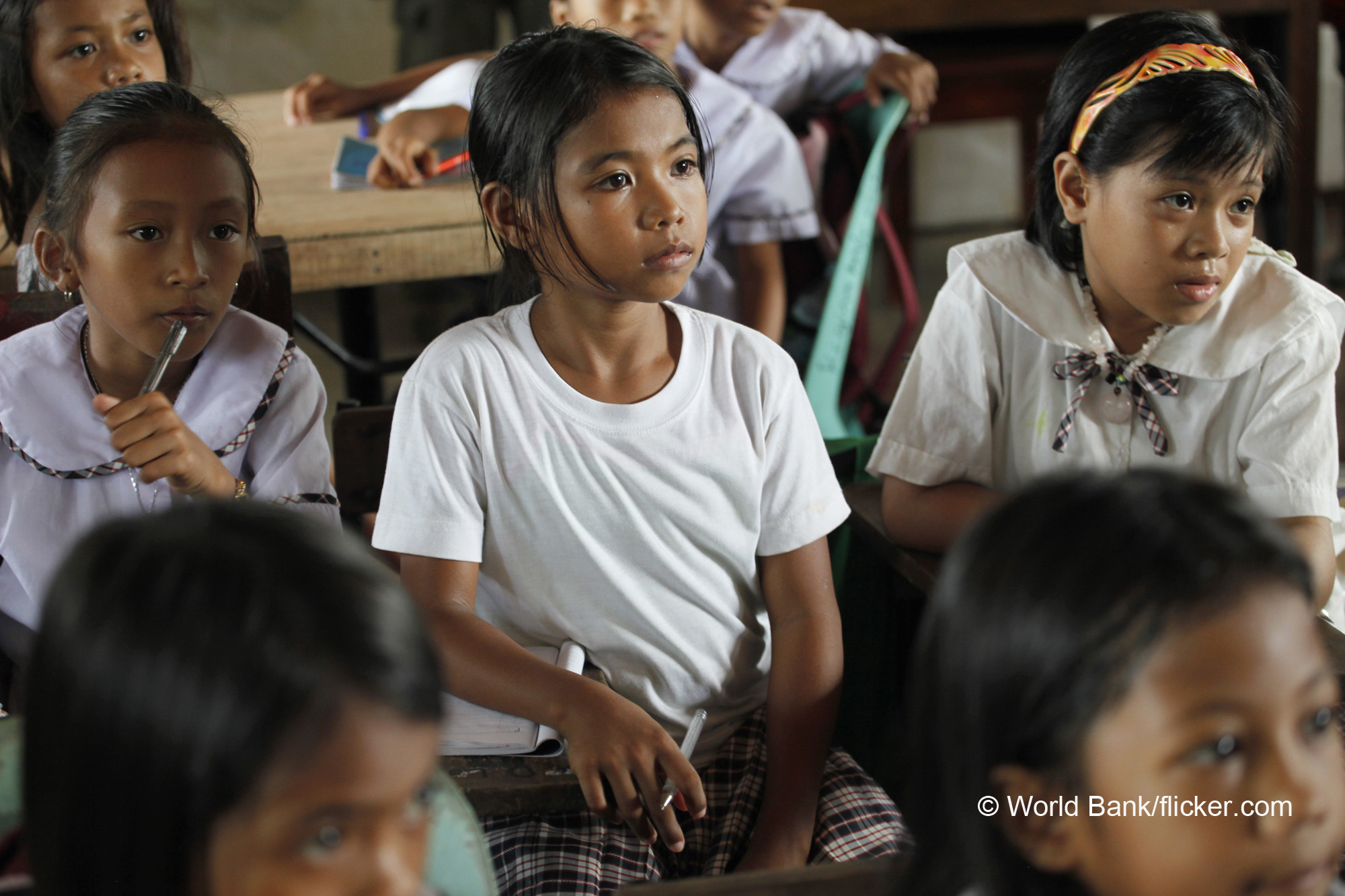 Poverty, hunger are major causes of school dropouts in PH – PIDS study Poverty, hunger are major causes of school dropouts in PH – PIDS study
The Department of Education has to address a number of issues on poverty and health to sustain the increasing number of children in the basic education sector.
Over 22.8 million enrollees are expected to enter public primary and secondary schools for this year’s opening of classes compared to last year’s more than 21.5 million enrollees. READ MORE |
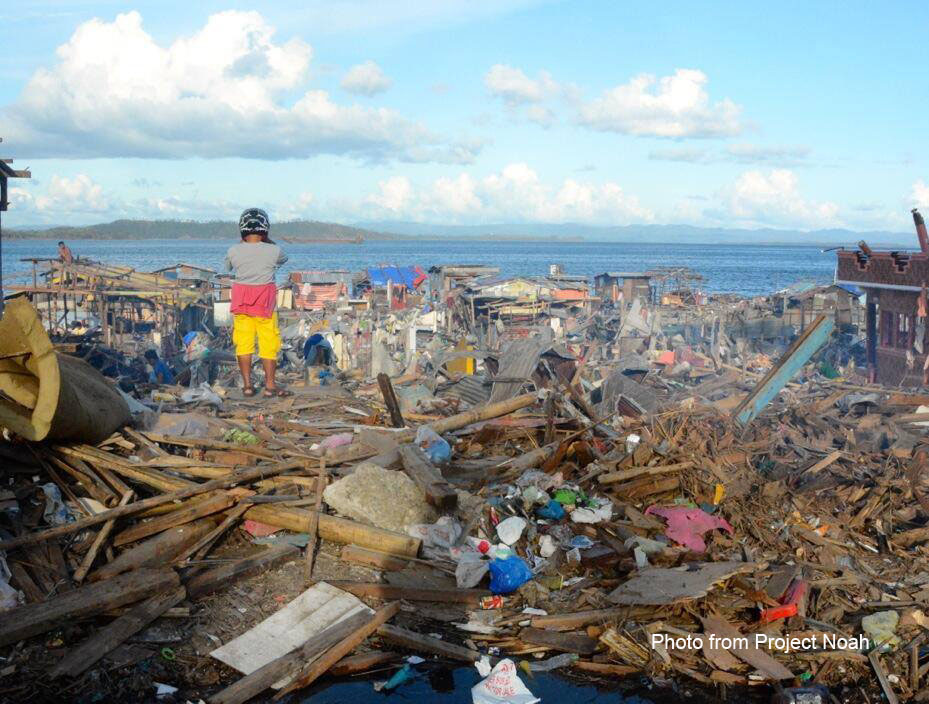 PIDS researchers to gov’t: Review institutional setup of disaster management council PIDS researchers to gov’t: Review institutional setup of disaster management council
Given its high exposure to disaster risk, the Philippines cannot continue to have a lead agency on disaster management with coordinative functions only, said Philippine Institute for Development Studies (PIDS) Research Fellow Sonny Domingo and Research Assistant Ma. Divina Olaguera.
In their paper "Have We Institutionalized DRRM in the Philippines?", the authors from the state think thank urged government to review the existing structure and functions of the National Disaster Risk Reduction and Management Council, a coordinating body authorized to craft policies as well as integrate, supervise, monitor, and evaluate DRRM operations in the country. READ MORE |
 PH telcos’ regulatory systems are below international standards – PIDS study PH telcos’ regulatory systems are below international standards – PIDS study
The quality of the Philippine telecommunication regulatory environment is significantly below international standards, according to a recent study of state think tank Philippine Institute for Development Studies (PIDS).
Authors Ma. Kristina Ortiz, Ramonette Serafica, and Jose Carlos Alexis Bairan, in their discussion paper, explained that the Philippines has an overall rating of 52.50 out of 100 in the scoring system set by the International Telecommunications Union. READ MORE |
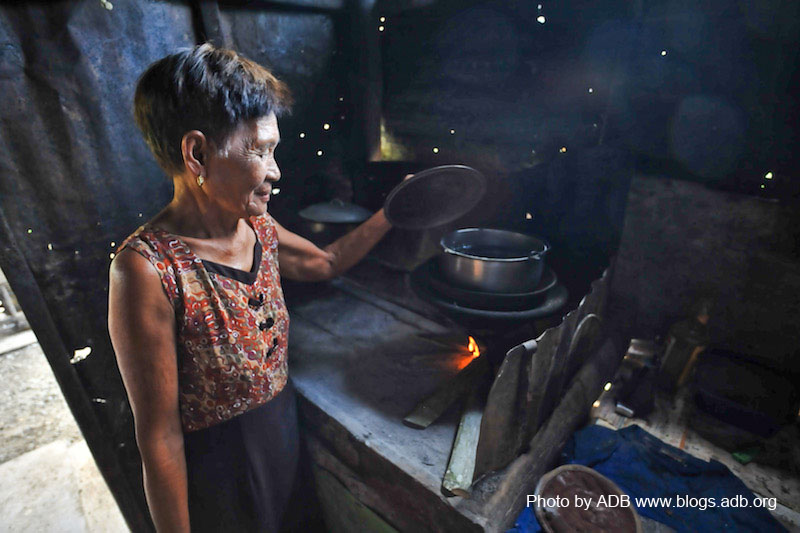 Weather fluctuations, gender affect household’s energy consumption – PIDS study Weather fluctuations, gender affect household’s energy consumption – PIDS study
Energy consumption in the country is affected by weather deviations and gender, according to a study published by state think tank Philippine Institute for Development Studies (PIDS).
In the Philippines, very few have analyzed energy use within the context of both weather variability and gender. Senior Research Fellow Connie Bayudan-Dacuycuy’s policy note titled “Examining Energy Use and Weather Variability Through the Gender Lens” aimed to analyze how energy consumption in households vary depending on the dominant gender in the household and weather fluctuations in an area.
READ MORE |
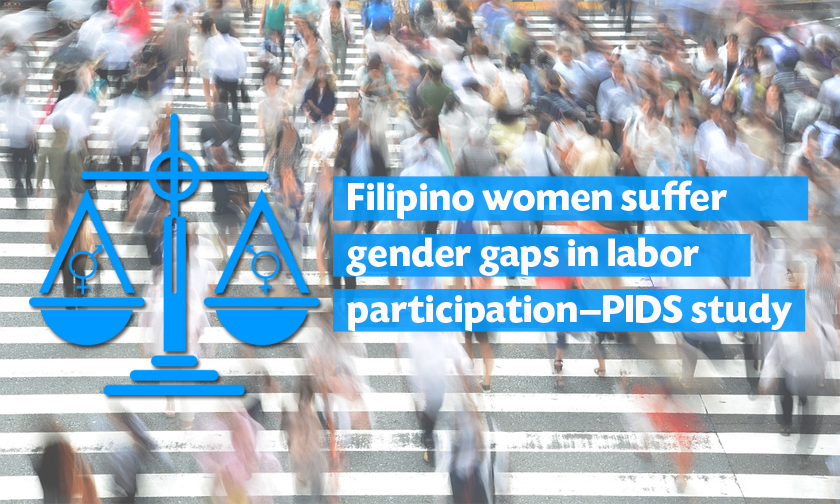 Filipino women suffer gender gaps in labor participation – PIDS study Filipino women suffer gender gaps in labor participation – PIDS study
Despite being listed by the World Economic Forum as the best performer in gender outcomes among the Association of Southeast Asian Nations member-states, the Philippines exhibits wide gender disparities in economic opportunities, according to a publication by state think tank Philippine Institute for Development Studies (PIDS).
Authored by Senior Research Fellow Jose Ramon Albert and Research Assistant Jana Flor Vizmanos, the policy note looked at trends in selected Sustainable Development Goals indicators and observed that women are mostly at a disadvantage in labor participation, including in employment rate, wage, and vulnerable employment. READ MORE |
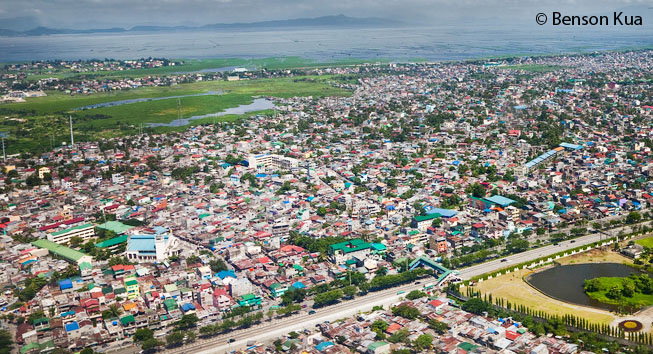 Gov’t housing program should improve slow-moving loan approval process – PIDS study Gov’t housing program should improve slow-moving loan approval process – PIDS study
Despite being one of the most innovative government housing programs in the country, the Community Mortgage Program (CMP) is saddled by weaknesses, researchers from state think tank Philippine Institute for Development Studies (PIDS) found out.
CMP is a financing scheme that enables organized residents of slum communities to borrow funds for land purchase and housing development. READ MORE |
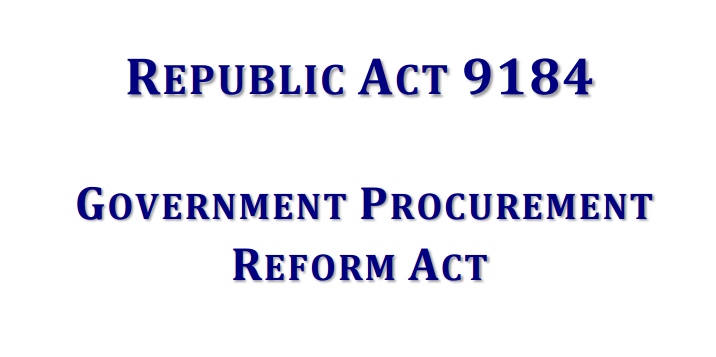 Planning gaps in gov’t procurement system causes disbursement delays – PIDS study Planning gaps in gov’t procurement system causes disbursement delays – PIDS study
The delays in government spending for the past years may stem from various reasons, with procurement as one of the major ones, a study by state think tank Philippine Institute for Development Studies (PIDS) said.
The discussion paper, “The Promises and Pains in Procurement Reforms in the Philippines”, authored by National Economic and Development Authority Undersecretary Adoracion Navarro and PIDS Research Analyst Juan Alfonso Tanghal examined the procurement system in the country to fully understand the challenges in its implementation. Navarro wrote the paper while she was a senior research fellow at PIDS. READ MORE |
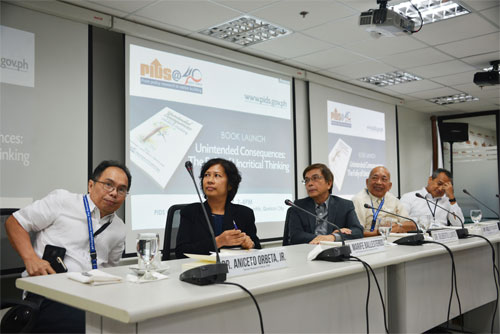 PIDS launches new book “Unintended Consequences: The Folly of Uncritical Thinking” PIDS launches new book “Unintended Consequences: The Folly of Uncritical Thinking”
The government needs rigorous analysis in formulating and implementing its policies, programs, and projects to prevent negative consequences.
This was the main message of the newest book of state think tank Philippine Institute for Development Studies (PIDS) titled “Unintended Consequences: The Folly of Uncritical Thinking”, which was launched on Wednesday, May 10, in Quezon City. The launch was attended by members of the academe, government, civil society, and media. READ MORE |
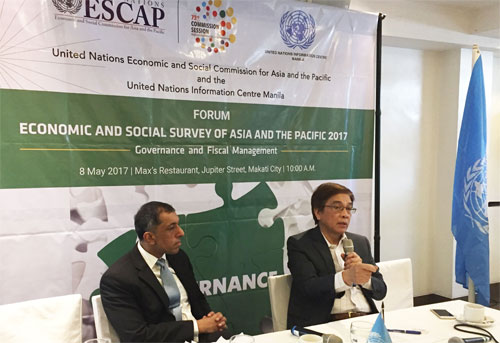 Improve governance and fiscal management to sustain economic growth in PH – experts Improve governance and fiscal management to sustain economic growth in PH – experts
Effective governance leads to economic growth. State think tank Philippine Institute for Development Studies President Gilberto Llanto said that effective governance includes being able to collect resources and spending them wisely and efficiently.
Speaking during a forum organized by the United Nations Economic and Social Commission for Asia and the Pacific for the presentation of the 2017 Economic and Social Survey of Asia and the Pacific, Llanto pointed out that the country is heading in a direction anchored on fiscal discipline and allocative and operational efficiency, as seen in its 2018 budget priorities framework.
READ MORE |
 Make tuna industry more efficient and competitive by streamlining regulations – PIDS study Make tuna industry more efficient and competitive by streamlining regulations – PIDS study
There is a need to reduce regulations in the tuna industry to make it efficient and competitive, according to researchers of state think tank Philippine Institute for Development Studies (PIDS).
The authors of “Reducing Unnecessary Regulatory Burden: The Philippine Tuna Industry”—PIDS President Gilberto Llanto, Research Analyst Maria Kristina Ortiz, and former Supervising Research Specialist Cherry Ann Madriaga—pointed out that the industry’s current regulatory framework is burdensome. READ MORE |

|
The Economic and Social Database of PIDS now contains congressional district-level data (based on the 2016 national elections) on the following indicators:
|

Need help? Have feedback? Feel free to contact us.
If you do not want to receive PIDS Updates, click here.
© 2017 Philippine Institute for Development Studies.

 
|
|


 The first issue of the Development Research News (DRN) this 2017 primarily focuses on persons with disabilities (PWDs). Researchers from the Philippine Institute for Development Studies (PIDS), through a research project conducted with the Institute of Developing Economies-Japan External Trade Organization, found that women and children PWDs are still suffering from the same dire conditions as before. The banner story deepens the discussion on this matter and presents the key recommendations that PIDS researchers are offering to improve the situation of the PWDs. This issue also covers the major events of PIDS during the period. These events include the PIDS forum on food security, where PIDS Senior Research Fellow Roehlano Briones attributed the increase of rice prices to the government's policy on self-sufficiency, and the roundtable discussion on the future of the ASEAN Community, which PIDS organized with the Singapore Institute of International Affairs.
The first issue of the Development Research News (DRN) this 2017 primarily focuses on persons with disabilities (PWDs). Researchers from the Philippine Institute for Development Studies (PIDS), through a research project conducted with the Institute of Developing Economies-Japan External Trade Organization, found that women and children PWDs are still suffering from the same dire conditions as before. The banner story deepens the discussion on this matter and presents the key recommendations that PIDS researchers are offering to improve the situation of the PWDs. This issue also covers the major events of PIDS during the period. These events include the PIDS forum on food security, where PIDS Senior Research Fellow Roehlano Briones attributed the increase of rice prices to the government's policy on self-sufficiency, and the roundtable discussion on the future of the ASEAN Community, which PIDS organized with the Singapore Institute of International Affairs. .jpg)
 Poverty, hunger are major causes of school dropouts in PH – PIDS study
Poverty, hunger are major causes of school dropouts in PH – PIDS study  PIDS researchers to gov’t: Review institutional setup of disaster management council
PIDS researchers to gov’t: Review institutional setup of disaster management council  PH telcos’ regulatory systems are below international standards – PIDS study
PH telcos’ regulatory systems are below international standards – PIDS study  Weather fluctuations, gender affect household’s energy consumption – PIDS study
Weather fluctuations, gender affect household’s energy consumption – PIDS study  Filipino women suffer gender gaps in labor participation – PIDS study
Filipino women suffer gender gaps in labor participation – PIDS study  Gov’t housing program should improve slow-moving loan approval process – PIDS study
Gov’t housing program should improve slow-moving loan approval process – PIDS study  Planning gaps in gov’t procurement system causes disbursement delays – PIDS study
Planning gaps in gov’t procurement system causes disbursement delays – PIDS study  PIDS launches new book “Unintended Consequences: The Folly of Uncritical Thinking”
PIDS launches new book “Unintended Consequences: The Folly of Uncritical Thinking”  Improve governance and fiscal management to sustain economic growth in PH – experts
Improve governance and fiscal management to sustain economic growth in PH – experts  Make tuna industry more efficient and competitive by streamlining regulations – PIDS study
Make tuna industry more efficient and competitive by streamlining regulations – PIDS study 
